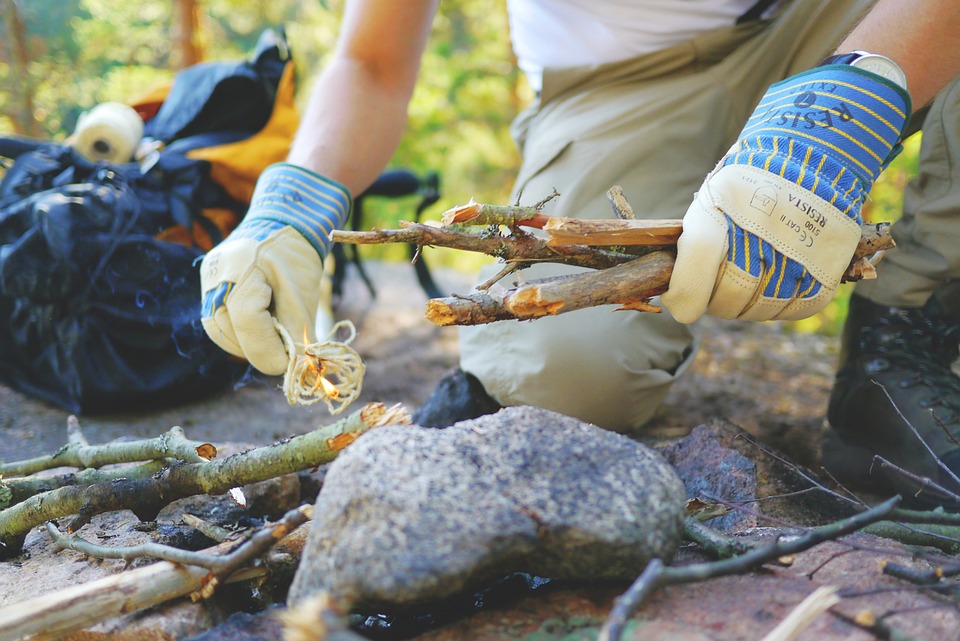Table of Contents
Introduction
Are you an outdoor enthusiast looking to embark on a camping adventure? From Tents to Trails is here to provide you with the ultimate camping guide! Whether you are a beginner or an experienced camper, this article will cover all the essentials, tips, and tricks to make your camping trip a memorable experience.
Choosing the Right Gear
Before heading out into the wilderness, it’s crucial to have the right gear. Here are some essentials you should consider:
- Tent: Select a tent suitable for the number of people and designed for the environment you’ll be camping in.
- Sleeping bag and pad: Invest in a quality sleeping bag and pad to ensure a comfortable night’s sleep.
- Cooking equipment: Opt for lightweight and durable cookware, a camp stove, and utensils.
- Clothing: Pack appropriate clothing layers to adapt to changing weather conditions.
- First aid kit: Always have a well-stocked first aid kit in case of any injuries.
Choosing the Perfect Campsite
Where you set up camp greatly impacts your camping experience. Consider the following factors while choosing a campsite:
- Location: Look for a campsite with scenic views, proximity to hiking trails, or access to water bodies.
- Ground: Ensure the ground is flat, free from rocks or debris, and suitable for setting up your tent.
- Privacy: If you prefer solitude, choose a more secluded campsite away from high-traffic areas.
- Safety: Avoid camping near dead trees, steep slopes, or areas prone to flash floods.
- Campfire: Check if the campsite allows campfires and follow fire safety guidelines.
Preparing for Outdoor Challenges
While camping, you may encounter various challenges. Here are some tips to overcome them:
- Bugs and insects: Pack insect repellent and consider bringing a mosquito net to protect yourself from bites.
- Weather changes: Prepare for unpredictable weather conditions by packing extra clothing layers and rain gear.
- Wildlife encounters: Familiarize yourself with the local wildlife and their behavior. Store food securely and observe from a safe distance.
- Navigation: Carry a map, compass, or GPS device to navigate trails and prevent getting lost.
- Leave No Trace: Practice Leave No Trace principles by minimizing your impact on the environment. Properly dispose of trash and leave nature as you found it.
Camping Food and Meal Planning
Food is an integral part of camping. Consider these tips for meal planning:
- Plan meals in advance: Make a meal plan and pack the necessary ingredients accordingly.
- Prep ahead: Prepare some ingredients or meals in advance to save time and reduce cooking effort at the campsite.
- Simple and lightweight: Opt for easy-to-make and lightweight meals that require minimal cooking equipment.
- Snacks and hydration: Pack plenty of snacks and stay hydrated by carrying an adequate water supply.
- Campfire cooking: Explore campfire cooking techniques such as foil packet meals, skewers, or Dutch oven cooking.
FAQs
Q: How do I choose the right camping tent?
A: Consider the number of people, weather conditions, and desired features like durability, ease of setup, and weight when choosing a camping tent.
Q: What should I do if I encounter a bear or other dangerous wildlife?
A: Maintain a safe distance, avoid sudden movements, make noise, and follow any guidelines or instructions provided by local authorities.
Q: Can I camp in national parks?
A: Most national parks offer camping facilities, but it’s essential to make reservations in advance and follow their specific regulations.
Q: How do I stay warm while camping in cold weather?
A: Layer your clothing, use a quality sleeping bag rated for cold temperatures, insulate your tent, and utilize hand warmers or heating packs if needed.
Q: Are campfires allowed everywhere?
A: Campfire regulations vary depending on the location and environmental conditions. Check with the local authorities or campground staff for specific guidelines.




